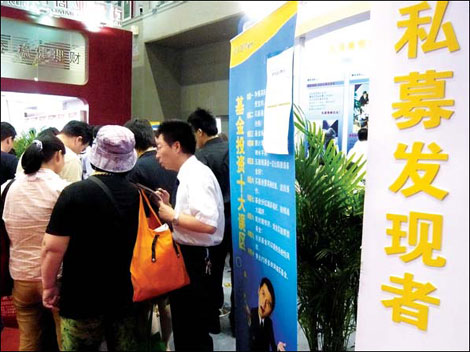Chinese antitrust regime may affect PEs
|
Investors gather in a fund house booth at the Beijing International Securities and Funds Expo held in May. File photo |
The Anti-monopoly Law came into effect on August 1, 2008, a week before the fireworks would appear for the Beijing Olympics. The law has attracted much publicity since its promulgation by the National People's Congress in August last year, which had culminated 13 years of legislative debate. A breathing space of 12 months between the time the law was passed and its effective date has enabled companies to review their business practices, and to ensure compliance under the new regulatory landscape.
Meanwhile, the economic landscape has witnessed considerable changes during the past 12 months. Against a backdrop of the sub-prime banking crisis in the United States that has spread across to Europe with banks writing down record figures as they battled with sour investments, sovereign funds have emerged as a new force to be reckoned with as they come to the rescue of financially distressed banks. China itself became a limited partner of Blackstone, and it has been announced that the Chinese social security fund will deploy monies into the private equity sector. With China continuing to be an attractive choice for foreign investors, how will the anti-monopoly legal regime impact the private equity houses ?
















